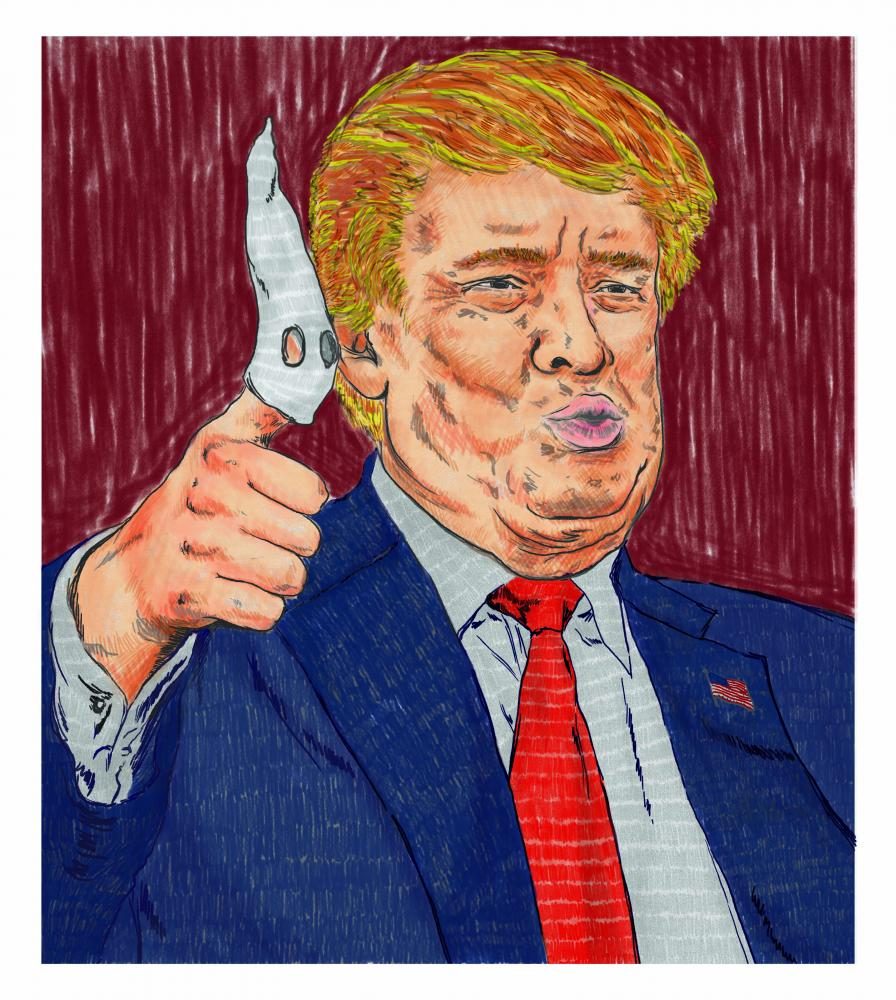White Supreme-ish?
September 20, 2017
When sports journalist and ESPN host Jemele Hill tweeted in response to a fan on Sept. 11 that President Donald Trump “is a white supremacist who has largely surrounded himself [with] other white supremacists,” she catapulted herself into a world of controversy.
Since the tweets, several statements have been issued in an attempt to quell the scandal. ESPN reprimanded Hill for her tweets. Then Hill issued somewhat of an apology,to ESPN-rather than the president, saying she regretted her “personal beliefs” might have painted the network in a negative light. To this, ESPN issued a final statement saying they accepted her apology. Perhaps the most puzzling part of this whole controversy came when White House Press Secretary Sarah Huckabee Sanders called Hill’s tweets “a fireable offense” during a press briefing.
If ESPN should fire Jemele Hill for thinking Donald Trump is a white supremacist, then the unemployment line should be getting a lot longer than it already is. Hill is certainly not the first person to call Trump out for being a racist. So why is she catching so much heat? The answer might have something to do with the fact that she’s a black woman, which makes her a very easy target for scrutiny.
Let’s briefly take a look at the not-so-fake-news here. During Trump’s presidential run, you couldn’t turn your TV to any station carrying the 2016 presidential election without seeing some person accusing Trump of deliberately spewing racist rhetoric and inciting racial violence. Many have said his entire campaign was built on it. Trump made headlines for comparing Mexicans to “criminals and rapists”, and it was reported that several minorities were assaulted by Trump’s white supporters during various rallies throughout his campaign. Since then, Trump hasn’t stopped fanning the flames of racial tension whenever he can. His handling of the deadly protests in Charlottesville is a prime example. Trump stated there were “bad people on both sides,” equating the white supremacist group to the people who protested against them.
His response is undoubtedly still fresh in many people’s minds, including, evidently, his own. He recently defended his initial remarks *again* while answering a question from a reporter aboard Air Force One. “You look at really what’s happened since Charlottesville, a lot of people are saying, and people have actually written, ‘Gee, Trump might have a point.’” Which people though, Mr. President?
The fact is, if you look at what’s happened since Trump announced his run for the White House, Jemele Hill might have an even better point.
The majority of criticism coming Hill’s way are people decrying her use of such a public platform to express personal beliefs. But we don’t see too many people saying she’s actually wrong. Why? There’s far too much evidence in support of her sentiments for people to make a convincing argument on the contrary. President Trump has been caught with his hand in the race cookie jar one too many times. He shouldn’t expect nobody’s going to call him out on it. If, in the future, Mr. Trump doesn’t want to be labeled in such defaming terms, then he needs to start spreading a genuine message of togetherness instead of segregation, and it needs to be done with some level of consistency. Whether it be a special address to the nation or even maybe inviting Hill to the White House to discuss why she feels the way she does, something needs to be done by the president to prove Jemele Hill wrong.




















